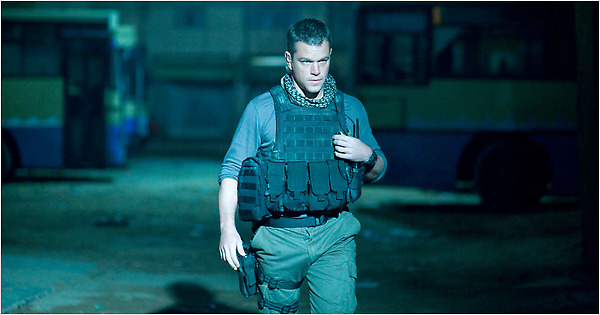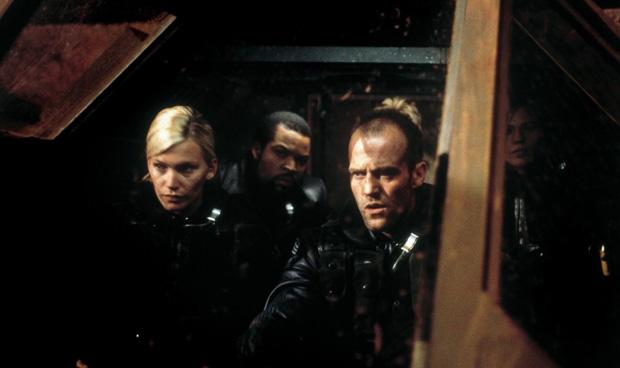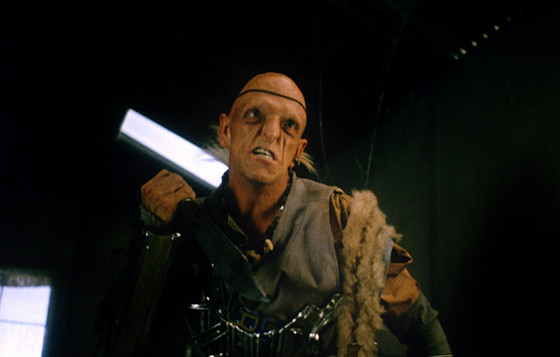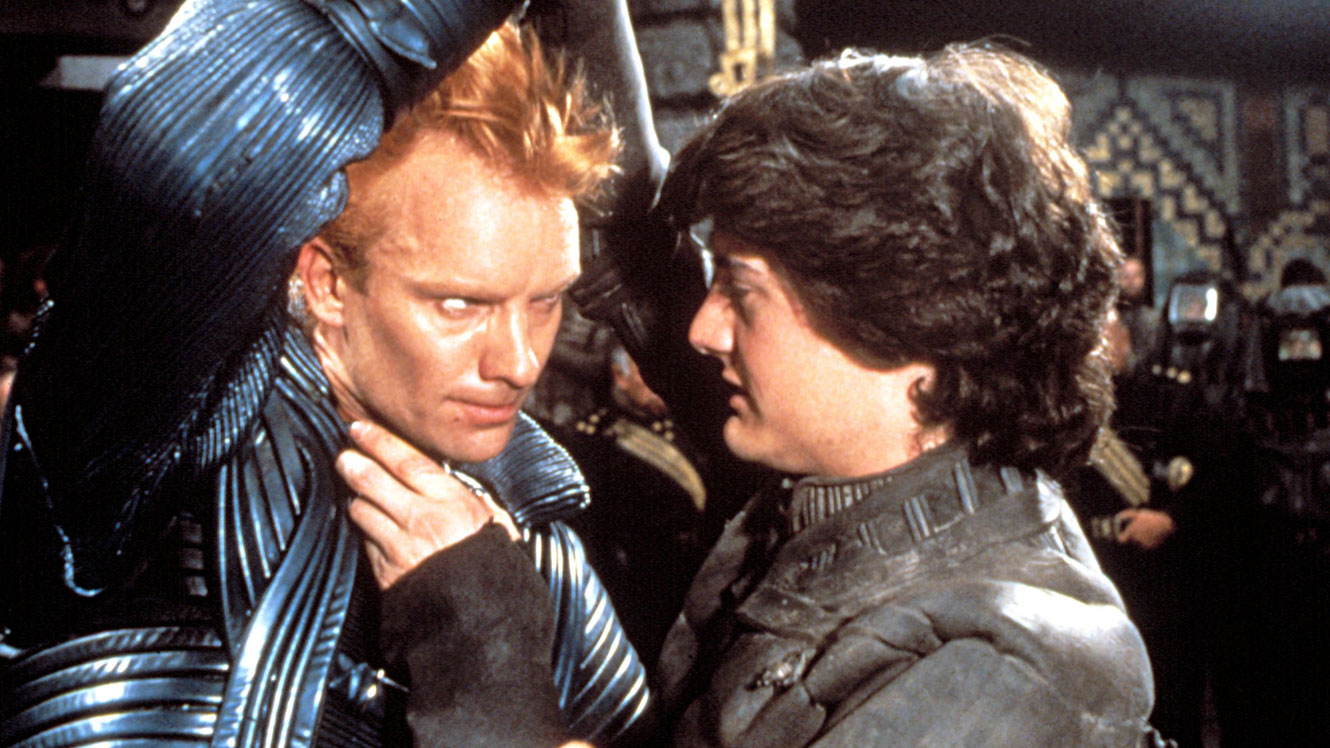5. To the Wonder (Terrence Malick)

Terrence Malick is one of the most unique directors working today. He began his career in the 1970s with the two arthouse gems “Badlands” and “Days of Heaven” before going on a 20-year hiatus.
He returned to the world of filmmaking with the masterpiece “The Thin Red Line,” and then he made the highly underrated “The New World” before making his magnum opus: “The Tree of Life.”
Then after reaching the peak of his career, he turned into a radical new direction with “To the Wonder,” where he used a highly experimental approach where he didn’t use a script and pretty much improvised the whole film to capture the raw beauty of life.
This was an approach that he would go on to perfect in his subsequent films “Knight of Cups” and “Song to Song,” but in “To the Wonder,” the approach failed spectacularly.
He based the film on episodes from his own life that took place in the 20-year hiatus between “Days of Heaven” and “The Thin Red Line,” and it shows that he is desperately trying to find a deeper meaning and beauty in his own experiences through the poetic images captured by Emmanuel Lubezki.
But it looks like he got lost in the whole process, and instead he ended up creating the cinematic equivalent of wandering aimlessly through your house thinking about all your ex-girlfriends.
It’s not as deep, beautiful, or poetic as he thinks it is, and it ends up being a pretty hollow and failed experiment that’s still interesting in its failure.
4. Green Zone (Paul Greengrass)

Paul Greengrass is a highly interesting director; most people didn’t begin to take serious note of his talents until he made “Bloody Sunday” (2002), which started the golden age of his career that skyrocketed him into the mainstream and made him one of the most well-known and respected British directors of our time.
But “Green Zone” is where his golden age came crashing down and all of his usual strengths as a director turned into weaknesses in a film that was one big miscalculation from the start.
A Greengrass film about the 2003 invasion of Iraq sounded like a great idea and should have been a great movie, and seeing him team up once again with Matt Damon after two great Bourne films was just the icing on the cake.
But the final result is a unique misfire, as Greengrass and his screenwriter Brian Helgeland ended up taking this complex situation and simplifying it to the point of absurdity.
It lacks all the depth and complexity that’s needed for the subject matter to work, and the idea of turning it into just another action film is nothing short of disrespectful to all of the people who died in the Iraq invasion.
“Green Zone” is one of the most misguided action films to come out this century, and it’s just astounding that a director known for his careful handling of complex issues would agree to make such a misguided dumpster fire of a film.
3. Ghosts of Mars (John Carpenter)

John Carpenter is the ultimate cult director; almost every single film he has made has gained a cult following and become a beloved cult classic.
When looking over his career, you won’t believe how perfect and utterly awesome it all is, until you come across the title “Ghosts of Mars” and realize that this amazing career almost ended in a shitshow; thankfully, it actually ended with the pretty decent “The Ward” (2010).
“Ghosts of Mars” is a weird film that makes sense on paper; a balls-to-the-wall action film set on Mars about a weird spirit that possesses people and turns them into bloodthirsty savages could have been absolutely awesome, but in execution, it’s a completely lifeless mess that never builds up enough momentum or atmosphere to become as awesome as it obviously wants to be.
Everything just feels off and nothing comes together in a satisfying way, like Carpenter got lost during production and couldn’t quite find the right way to turn the film into the gloriously silly and over-the-top camp action extravaganza he wanted to make, and instead made a weirdly dull mess.
2. The Hills Have Eyes 2 (Wes Craven)

Wes Craven is the master of horror; he repeatedly changed and re-defined the horror genre throughout his career, more so than any other horror director.
He started one of the greatest horror franchises of all time with “A Nightmare on Elm Street,” and then he changed the horror landscape of the ‘90s with the “Scream” franchise.
His best and most well-known films are all high watermarks in the horror genre that still haven’t been rivalled by any of his imitators, and even his lesser-known pieces range from great to awesome.
Out of the 27 films he directed, there is really only a single film that isn’t worth watching and that’s “The Hills Have Eyes 2,” a film that Craven only made because he was in desperate need of some money after the financial flop of the highly underrated “Swamp Thing” (1982).
It was filmed and finished in 1983, but was shelved and wasn’t released until 1985 after the massive box office success of “A Nightmare on Elm Street.” Craven went on to disown it and it’s easy to see why.
While watching it, it soon becomes painfully obvious that the film was thrown together in a rush as it lacks all the style and atmosphere of Craven’s other films.
The story is basically just a repeat of the first one but with a weaker, dumber setup and more characters that you never care about.
It’s also has barely enough story and action to fill up a feature length and leads to it reusing long sections from the first film as flashbacks; even the dog gets a flashback, which isn’t as funny as it sounds.
The film is also so dreadfully boring that all ironic enjoyment that could possibly be gained from certain scenes is cancelled out.
It’s a film that sticks out like a sore thumb while going over Craven’s filmography, because even though there are periods in his career that are less popular than others, all of his other films are still at least worth watching and deserving of cult status.
For a large portion of his career, Craven achieved such a level of infamy that people began taking his work for granted and didn’t really look closer at how masterful his directing really was. It’s really sad that since his swan song “Scream 4” was released in 2011 that the horror genre has been lacking the sense of masterful playfulness that made Craven’s work so special.
Instead, the genre left his influence behind and moved in a direction where every horror film is either a self-serious arthouse piece devoid of entertainment value but high in quality (“The VVitch,” “Hereditary,” “The Babadook,” “The Neon Demon,” “mother!”) or lazy jump-scare fests devoid of any real artfulness in their construction (The Conjuring universe, “Lights Out,” “The Gallows,” “Poltergeist” [2015], “The Blair Witch Project”).
If you go back and watch any of his horror films and then compare them to the current climate of horror cinema, you will see that there is a certain spark missing from modern horror films that seemingly died with Craven.
But everything that made Wes Craven so special is completely absent from “The Hills Have Eyes 2,” and frankly it should be forgotten by everyone as soon as humanly possible.
1. Dune (David Lynch)

David Lynch is the mad scientist of cinema; since his directorial debut “Eraserhead” (and even before that) he has been pushing the art of filmmaking into new directions with his unique experimental approach that is almost impossible to define, but is so unmistakably Lynchian that you instantly recognize it when you see it.
He has directed 10 theatrically-released feature length films, and except for “Dune,” they have all been great. “Dune” is the only major dud on his filmography, and when you look at the behind-the-scenes story, it makes a lot of sense.
The material never fully gelled with his unique style and the final product is this weird lifeless mess that always feels like it’s on the verge of sci-fi camp greatness, but never builds up enough energy and momentum to take off from the ground and ends up being the cinematic equivalent of engine failure; the car looks great and has all the potential of a race car, but it never even leaves the garage because the engine is completely fucked.
The film has gained a cult following and it’s understandable that the weirdness of the film would attract some viewers, in the same way that “Jupiter Ascending” has, but the film is still a complete and utter trainwreck and the nadir of Lynch’s career.
The film could have been saved if it was this batshit insane ride of sci-fi camp bullshit, but it’s just way too long and meandering to even come close to being entertaining enough to warrant a cult following.
We all know how great David Lynch can be and he has nine other films, a boatload of short films, and three seasons of “Twin Peaks” to prove it, which makes it both incredibly sad and kind of interesting to watch him take such a massive misstep.